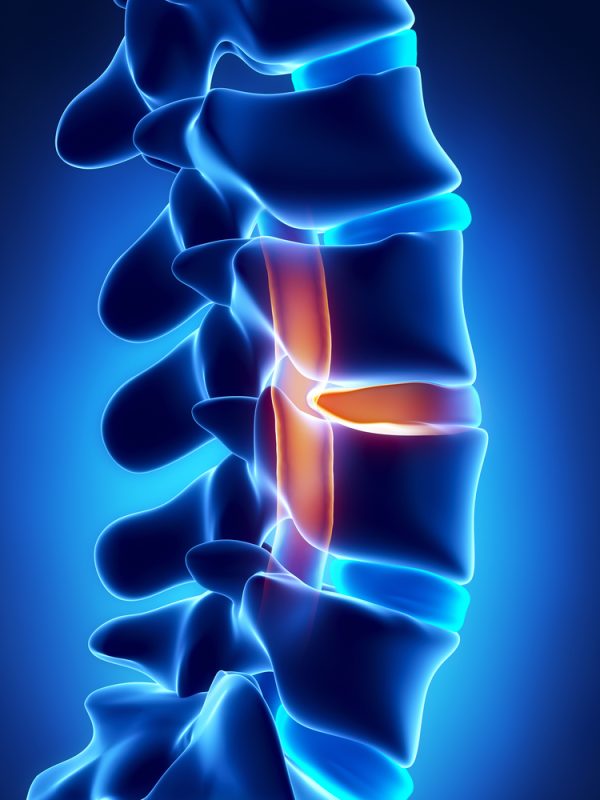Back Pain
Herniated/Bulging Disc
A herniated disc, also known as a bulging disc, is a very common condition which can affect any part of the spine causing severe pain in the region as well as problems in the arms or legs. Most herniated discs occur in the low back, which can lead to pain, numbness, tingling, or weakness in the buttocks, thighs, legs, and feet. Herniated discs can also occur in the neck, where they cause similar symptoms in the shoulder, arms, and hands.
Herniated discs occur when the hard outer wall of the disc (called the annulus) ruptures, allowing the soft inner part of the disc (called the nucleus pulposis) to bulge outward towards the spinal cord and nerve roots, causing compression and irritation which can lead to radiculopathy/sciatica.
Herniated discs can result from a traumatic injury, lifting a heavy object improperly, gradually over many years as a result of normal wear and tear to the spine, and degenerative disc disease.
Treatment options for herniated discs generally depend on the location, severity, and duration of symptoms. Conservative management includes pain relieving medications, anti-inflammatories, physical therapy, Platelet Rich Plasma, and epidural steroid injections.

